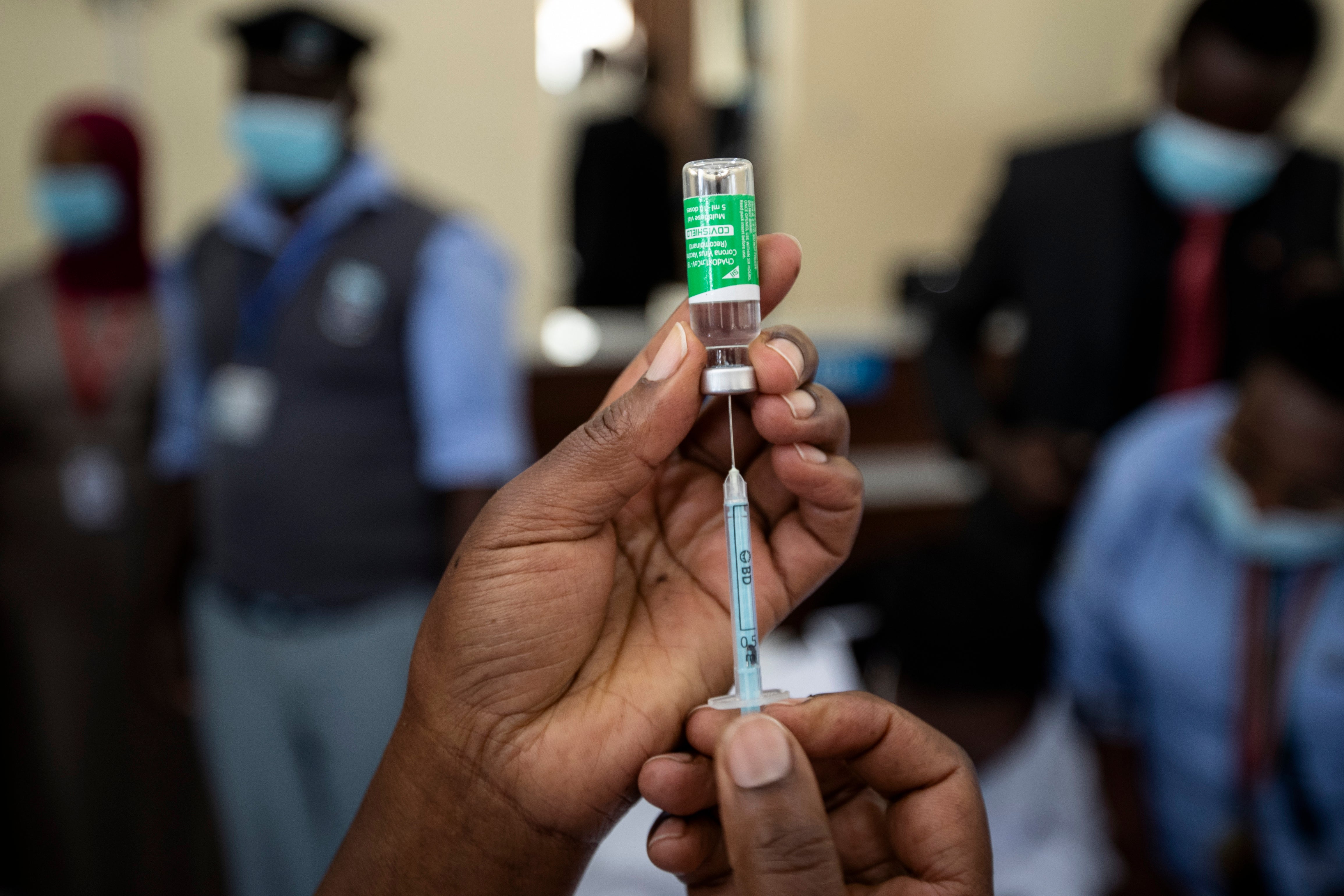Kenya stops private importation of COVID-19 vaccines
Kenya has ordered an immediate suspension on private importations of vaccines, citing fears that it may lead to counterfeit inoculations getting into the country

Your support helps us to tell the story
From reproductive rights to climate change to Big Tech, The Independent is on the ground when the story is developing. Whether it's investigating the financials of Elon Musk's pro-Trump PAC or producing our latest documentary, 'The A Word', which shines a light on the American women fighting for reproductive rights, we know how important it is to parse out the facts from the messaging.
At such a critical moment in US history, we need reporters on the ground. Your donation allows us to keep sending journalists to speak to both sides of the story.
The Independent is trusted by Americans across the entire political spectrum. And unlike many other quality news outlets, we choose not to lock Americans out of our reporting and analysis with paywalls. We believe quality journalism should be available to everyone, paid for by those who can afford it.
Your support makes all the difference.Kenya has ordered an immediate suspension on private importations of vaccines citing fears that it may lead to counterfeit inoculations getting into the country.
“To ensure the transparency and accountability in the vaccination process, and to protect the integrity of the country, the government is effective today closing the window of private sector importation, distribution and administration of vaccines, until such a time there is greater transparency and accountability in the entire process, ” a statement by the National Emergency Response Committee on the coronavirus said Friday evening.
Private health facilities have been charging about $80 for the Russian Sputnik V vaccine, while the governments institutions are giving for free AstraZeneca-Oxford vaccines received from the global COVAX initiative that was created to ensure that low- and middle-income countries have fair access to vaccines.
In recent weeks the Kenyan government has been on a sensitization campaign to reduce the reluctant uptake by frontline workers of the AstraZeneca-Oxford vaccines. So far around 160,000 people have been vaccinated in more than a month since just over 1 million doses were received.
President Uhuru Kenyatta on March 26 after announcing new stricter restriction on movement and assembly due to an upsurge of Coronavirus cases and deaths, led his cabinet in getting vaccinated publicly.
Kenya Medical Practitioners and Dentist Union says the reluctance by health care workers was due the fact they were not sensitized enough before the vaccines were brought.
Kenya's government says the country's positivity rate jumped from 2.6% at the end of January to 19.1% on April 2 after 9,676 people were tested Thursday.
Separately, the British government says that beginning April 9 it will not permit Kenyan nationals and others who have transited through the East African country.
A statement Thursday from the UK to Kenya, that was released by Kenya's foreign affairs ministry, said a significant amount travelers from Kenya are testing positive for the B.1.351 variant of the disease, which originated in South Africa.
Only UK nationals and those holding residency permits, will be allowed to enter from the country, the statement said. On average, about 550 people travel from Kenya to the UK each week.
The British High Commission stressed that these are temporary measures that will be kept under review, it said.